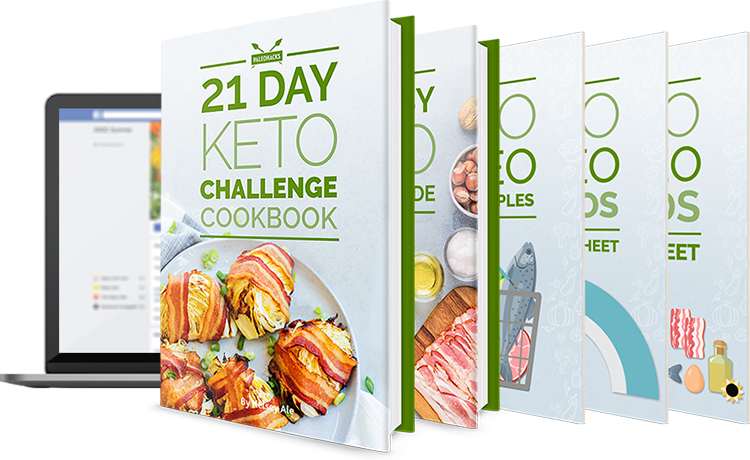When you're on a ketogenic diet and hit with flu-like symptoms, staying hydrated and balancing your electrolytes become essential. You'll want to increase your water intake and consider electrolyte supplements to help manage those pesky symptoms. But hydration isn't the only piece of the puzzle. Consuming foods rich in magnesium and potassium can make a significant difference, and you shouldn't overlook the benefits of omega-3 fatty acids, vitamin D, and probiotics. Herbal teas like ginger or peppermint can also offer natural relief. Curious about how these elements work together to ease your discomfort? Let's explore further.
Hydration Strategies
When you're following a ketogenic diet and experiencing flu-like symptoms, staying hydrated is crucial. Ensuring proper water intake helps your body adjust to the low-carb lifestyle and can alleviate some of those unpleasant symptoms. You might feel more dehydrated than usual because your body excretes more water when you cut down on carbs, leading to symptoms like headaches, fatigue, and dizziness.
To combat this, aim to increase your water intake throughout the day. Instead of chugging large amounts all at once, focus on your sipping frequency. Take small sips consistently to keep your body well-hydrated and to avoid overwhelming your system. Carry a water bottle with you and set reminders if needed, so you don't forget to drink regularly.
Drinking water before, during, and after meals can also be beneficial. It helps maintain a steady flow of hydration, aiding in digestion and overall well-being. Remember, the goal is to stay ahead of dehydration before it becomes an issue. By keeping your water intake in check and monitoring your sipping frequency, you can effectively ease the flu-like symptoms of a ketogenic diet.
Electrolyte Supplements
Balancing electrolytes is imperative for anyone on a ketogenic diet, especially when dealing with flu-like symptoms. When you first switch to keto, your body undergoes many changes, including an electrolyte imbalance. This imbalance can lead to headaches, fatigue, and muscle cramps, commonly known as the "keto flu".
To combat these symptoms, you should consider taking electrolyte supplements. These supplements can help restore the balance of sodium, potassium, and calcium in your body. Key to this process is paying attention to supplement timing. Taking your electrolytes at the right times can make a significant difference. For example, consuming a sodium supplement in the morning can help maintain your energy levels throughout the day. Similarly, taking potassium and calcium supplements in the evening can aid in muscle recovery and prevent cramps during the night.
Central to this is reading the labels and following the recommended dosages. Too much of any supplement can lead to further complications. Always consult with your healthcare provider before starting any new supplement regimen. By carefully managing your electrolyte intake, you can ease those flu-like symptoms and make your shift to a ketogenic diet much smoother.
Magnesium Intake
Including magnesium in your ketogenic diet is essential for mitigating flu-like symptoms. When you switch to a keto diet, your body releases more water and electrolytes, which can lead to magnesium deficiency. This deficiency often results in muscle cramps, fatigue, and headaches—symptoms that mimic the flu. Ensuring you get enough magnesium can help prevent these unpleasant side effects.
One way to boost your magnesium intake is by incorporating magnesium-rich foods into your meals. Spinach, almonds, and avocado are excellent choices that fit well with keto guidelines. However, even with a well-planned diet, it can sometimes be challenging to meet your magnesium needs through food alone.
That's where magnesium supplements come in. Taking a magnesium supplement can provide a quick and effective way to address any deficiencies. Look for high-quality options like magnesium citrate or glycinate, as they are more easily absorbed by your body. Start with a low dose and gradually increase it to avoid digestive issues.
Incorporating magnesium into your routine not only helps ease flu-like symptoms but also supports overall muscle and nerve function. Don't overlook this essential element in maintaining your well-being on a ketogenic diet.
Potassium Sources
Magnesium isn't the only mineral that plays a vital role in easing flu-like symptoms on a ketogenic diet. Potassium is just as important for keeping those symptoms at bay. When you're on keto, your body excretes more potassium, which can lead to deficiencies if you're not careful.
To boost your potassium intake, consider making a potassium broth. This nutrient-rich broth is easy to prepare and can be a delicious way to stay hydrated while getting your necessary minerals. Simply simmer a variety of potassium-rich vegetables like spinach, kale, and zucchini, then strain and sip the broth throughout the day.
Leafy greens are another excellent source of potassium. Incorporate spinach, kale, and Swiss chard into your meals as much as possible. You can add them to salads, smoothies, or even sauté them as a side dish. These greens not only provide potassium but also offer other essential nutrients that support overall health.
Don't underestimate the importance of potassium in your diet. By including potassium broth and leafy greens, you can help ease those flu-like symptoms and maintain better overall well-being while sticking to your ketogenic lifestyle.
Sodium Balance
Maintaining ideal sodium levels is crucial on a ketogenic diet, especially when you're dealing with flu-like symptoms. A keto diet causes your body to excrete more sodium due to reduced insulin levels, leading to potential sodium retention issues and fluid shifts. This can exacerbate symptoms like headache, fatigue, and muscle cramps.
To manage sodium balance effectively, follow these four steps:
- Increase Salt Intake: Add more salt to your meals. Using sea salt or Himalayan pink salt can help boost sodium levels naturally.
- Drink Bone Broth: Bone broth is rich in sodium and other electrolytes. It's an excellent way to replenish lost sodium and stay hydrated.
- Consume Electrolyte Supplements: Look for electrolyte supplements specifically designed for low-carb diets. These usually contain balanced amounts of sodium, potassium, and magnesium.
- Stay Hydrated: Proper hydration helps manage fluid shifts and enhances sodium retention. Confirm you're drinking enough water throughout the day.
Omega-3 Fatty Acids
While managing your sodium balance is essential, don't overlook the significance of omega-3 fatty acids on a ketogenic diet, especially when you're feeling under the weather. These fatty acids can play a pivotal role in helping you manage flu-like symptoms. Omega-3s are renowned for their inflammation reduction properties. When your body is fighting off an illness, inflammation can exacerbate your symptoms, making you feel even more miserable.
By incorporating omega-3 fatty acids into your diet, you could potentially reduce this inflammation and alleviate some of your discomfort. Foods rich in omega-3s include fatty fish like salmon, mackerel, and sardines. If you're not a fan of fish, you can also consider taking high-quality fish oil supplements to guarantee you're getting an adequate amount of these beneficial fatty acids.
Moreover, omega-3s can support your immune system, helping it function more efficiently as it combats whatever bug you've caught. So, next time you're stocking up on keto-friendly foods, make sure to include sources of omega-3 fatty acids. Your body will thank you, and you might just find yourself feeling better faster.
Vitamin D Benefits
As you navigate a ketogenic diet while dealing with flu-like symptoms, don't underestimate the importance of vitamin D. This essential nutrient plays a significant role in your immune system, helping to ease those pesky symptoms. Your body has vitamin D receptors that are pivotal for activating your immune cells. By ensuring adequate vitamin D intake, you boost your body's ability to fight off infections.
- Immune System Support: Vitamin D enhances pathogen-fighting effects of monocytes and macrophages—white blood cells that are important to immune defense—and decreases inflammation.
- Mood Regulation: Seasonal variation in sunlight exposure can affect your mood. During months with less sunlight, maintaining your vitamin D levels can help stave off seasonal affective disorder.
- Bone Health: Vitamin D is indispensable for calcium absorption, which keeps your bones strong and healthy, reducing the risk of fractures.
- Inflammation Reduction: Adequate vitamin D levels help reduce inflammation, which can alleviate some of the discomfort associated with flu-like symptoms.
Don't let seasonal variation affect your well-being. Make sure to get enough vitamin D through sunlight, supplements, and vitamin D-rich foods to help your body stay resilient.
Probiotic Foods
Vitamin D isn't the only player in supporting your immune system while on a ketogenic diet. Probiotic foods can also be a game-changer. By incorporating these foods into your diet, you'll help maintain a balanced gut bacteria, which is essential for a robust immune system. Good gut health can ease flu-like symptoms and make your shift into ketosis smoother.
You might be wondering which probiotic foods fit well within a keto lifestyle. Fermented foods like sauerkraut, kimchi, and pickles are excellent choices. They're low in carbs but packed with beneficial bacteria that can boost your immune system. Another great option is full-fat yogurt or kefir, as long as it's unsweetened. These dairy products are rich in probiotics and can help keep your gut bacteria balanced. For those looking for even more options, consider adding ketofriendly cheese snack ideas to your routine. Hard cheeses like cheddar, gouda, or parmesan can pair beautifully with fermented vegetables, creating a nutritious and satisfying snack. Combining these with healthy fats, like a handful of nuts or a drizzle of olive oil, can further enhance the flavor while keeping you firmly within your keto goals.
Adding a variety of probiotic foods to your diet can also aid digestion, reducing the bloating and discomfort that sometimes accompany a ketogenic diet. Remember, a healthy gut supports a strong immune system, which is fundamental when you're fighting off flu-like symptoms. So, don't underestimate the power of probiotics in your keto journey.
Herbal Teas
Herbal teas can be a soothing and effective way to ease flu-like symptoms while you're on a ketogenic diet. They offer natural relief without compromising your keto goals. Certain herbal teas stand out for their remarkable health benefits, helping you feel better faster.
- Ginger Tea: Known for its strong anti-inflammatory and antioxidant properties, ginger tea can help reduce throat pain and congestion. Ginger properties also aid digestion, which can be particularly helpful if you're experiencing stomach upset.
- Turmeric Tea: Turmeric benefits include its powerful anti-inflammatory and antiviral effects. Turmeric can help reduce body aches and boost your immune system, making it an excellent choice when you're feeling under the weather.
- Peppermint Tea: This tea can help soothe a sore throat and reduce coughing. The menthol in peppermint acts as a natural decongestant, helping you breathe easier.
- Chamomile Tea: Chamomile is well-known for its calming effects. It can help you relax and get a good night's sleep, which is vital for recovery.
At a Glance
To ease flu-like symptoms on a ketogenic diet, confirm you're staying hydrated and balancing your electrolytes. Don't forget to boost your intake of magnesium, potassium, and sodium. Incorporate omega-3 fatty acids, vitamin D, and probiotics to support your immune system. Herbal teas like ginger, turmeric, peppermint, and chamomile can provide natural relief. By following these strategies, you'll manage your symptoms more effectively and support your overall well-being on a keto diet. In addition to these dietary adjustments, consider incorporating light exercise and stretching into your routine to alleviate muscle cramps and promote overall wellness on a ketogenic diet. If symptoms persist, consider consulting a healthcare professional for personalized guidance on managing flu-like symptoms while following a ketogenic diet and muscle cramps relief. Taking a holistic approach to your health and making adjustments as needed will help you stay on track with your wellness goals.





